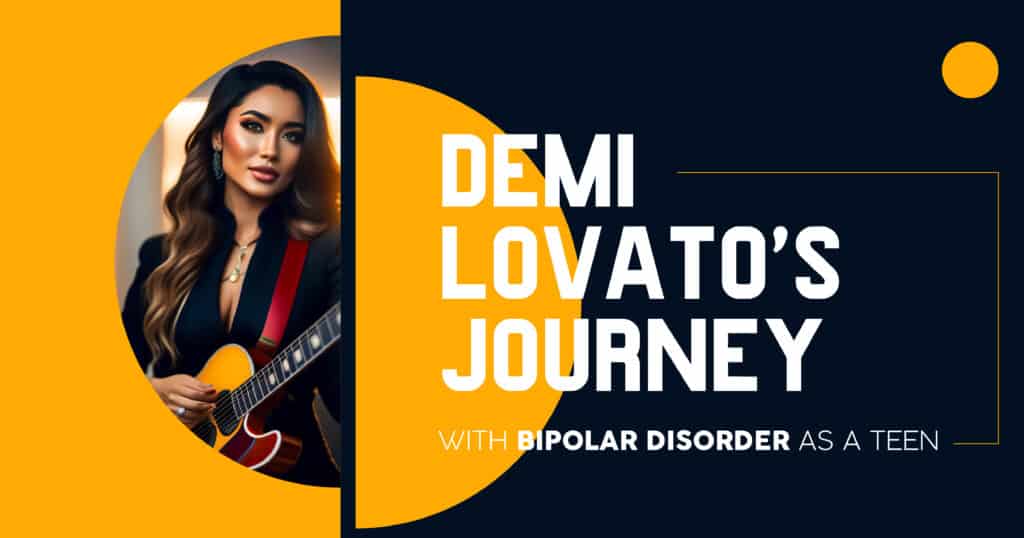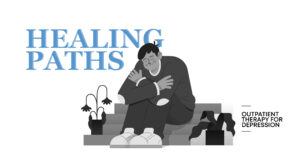Demi Lovato’s Bipolar Disorder: More than Meets the Eye
Hey there, folks! We’re diving deep into the whirlwind world of Demi Lovato’s bipolar disorder, where the pop sensation turned mental health advocate has shown us that even the brightest stars can have their moments of darkness. So, what’s the deal with Demi Lovato’s bipolar disorder? Let’s peel back the layers, get real, and find out what makes this journey so remarkable.
Hillside Horizon
Unmasking Demi Lovato’s Bipolar Disorder
The Spotlight and the Shadows
Demi Lovato’s Bipolar Disorder – What’s That?
First things first, let’s break down what we’re talking about here. Bipolar disorder, sometimes called manic-depressive illness, is a brain disorder characterized by extreme shifts in mood, energy, and activity levels. It’s like riding a rollercoaster of emotions, with high highs and low lows. And guess what? Demi Lovato knows this ride all too well.
The Manic Marvel
1. High on Life: During the manic phase, Demi, like many others with bipolar disorder, experiences heightened energy, creativity, and euphoria. It’s like they’re on top of the world.
2. Impulsivity: The manic phase often comes with impulsive behaviors, sometimes leading to risky decisions or actions.
3. Unstoppable: People in this phase may feel unstoppable, taking on multiple projects and responsibilities with enthusiasm.
The Depressive Downturn
1. Rock Bottom: On the flip side, there are depressive episodes, where Demi Lovato and others with bipolar disorder may feel overwhelmingly sad, hopeless, and fatigued.
2. Social Withdrawal: Depressive episodes often lead to social withdrawal, making it challenging to maintain relationships and perform daily tasks.
3. Suicidal Thoughts: In severe cases, individuals may have thoughts of suicide, highlighting the gravity of bipolar disorder’s impact.
Now that we’ve got the basics down, let’s journey further into Demi Lovato’s bipolar disorder story.
Hillside Horizon
Demi’s Revelation: Living with Bipolar Disorder
From Disney Darling to Mental Health Advocate
Demi Lovato’s Bipolar Disorder Journey
So, you may wonder how Demi Lovato’s bipolar disorder story unfolded. Well, it’s a tale of resilience, strength, and the power of speaking your truth.
Hitting Rock Bottom
1. Dark Days: Demi Lovato’s bipolar disorder journey began with a series of dark days, marked by self-destructive behaviors and struggles with addiction.
2. Diagnosis: It wasn’t until 2011 that Demi received a formal diagnosis of bipolar disorder. This revelation marked a turning point in her life.
3. Breaking the Silence: Demi’s decision to speak openly about her struggles shattered the stigma surrounding mental health issues, inspiring countless others to seek help.
Advocacy and Empowerment
1. Mental Health Advocate: Demi Lovato didn’t stop at her personal journey. She became a vocal advocate for mental health awareness, sharing her experiences and encouraging others to seek support.
2. Treatment and Recovery: Through therapy, medication, and a strong support system, Demi learned to manage her bipolar disorder and regain control of her life.
3. Music as Therapy: Demi channeled her emotions into her music, creating songs that resonate with people battling their own mental health demons.
Now, let’s address some of the burning questions you might have about Demi Lovato’s bipolar disorder journey.
FAQs: Your Burning Questions Answered
1. Can people with bipolar disorder lead successful lives?
Absolutely! With the right treatment, support, and coping strategies, individuals with bipolar disorder can lead fulfilling lives and achieve their goals.
2. What is the connection between creativity and bipolar disorder?
There’s a common belief that bipolar disorder may be linked to increased creativity, especially during manic phases. While some artists and writers have bipolar disorder, not everyone with the condition experiences this connection.
3. How can I support a loved one with bipolar disorder?
Supporting a loved one with bipolar disorder involves being understanding, patient, and educated about the condition. Encourage them to seek professional help and offer your support in their journey to recovery.
4. Is there a cure for bipolar disorder?
Bipolar disorder doesn’t have a cure, but it can be effectively managed with the right treatment, which may include therapy, medication, and lifestyle changes.
“I had to bring my little brother and cousin into treatment, I’m so glad I found Hillside Horizon for Teens for teens. The facility is not only a beautiful location but very comfortable and welcoming. Trying to get a teenager into a treatment center is difficult enough. The staff there was amazing and helped me with any questions or concerns I had. I was also fortunate enough to get to know the owner Anthony Fletcher on a personal level. He runs an incredible helpful program that saved my family. I would 10/10 recommend Hillside Horizon for Teens for any juvenile struggling with mental health issues or substance. They will do their upmost to make the treatment as easy as possible for the client and the family!” – Mitchell Biss
Hillside Horizon
Celebrating Resilience
Demi Lovato’s Bipolar Disorder: A Beacon of Hope
In a world where mental health is often stigmatized and misunderstood, Demi Lovato’s bipolar disorder journey serves as a beacon of hope. Her willingness to share her struggles, triumphs, and ongoing journey to wellness has inspired millions to seek help and break free from the shackles of shame.
As we celebrate Demi Lovato’s courage, let us remember that mental health knows no boundaries. It can affect anyone, regardless of fame or fortune. By acknowledging our own struggles and supporting those around us, we can create a world where everyone feels empowered to speak their truth and seek the help they deserve.
So, here’s to Demi Lovato and all the warriors battling their inner demons – you are not alone, and your journey is a testament to the strength of the human spirit.
Bipolar Disorder is a challenging diagnosis, especially for children and adolescents still developing emotionally. While it is still unclear what causes bipolar Disorder, plenty of research exists on how it should be diagnosed and treated. With the right treatment plan from Hillside Horizon for Teens, alongside care and understanding from loved ones, adolescents with Bipolar Disorder can lead a satisfying and fulfilling life.





